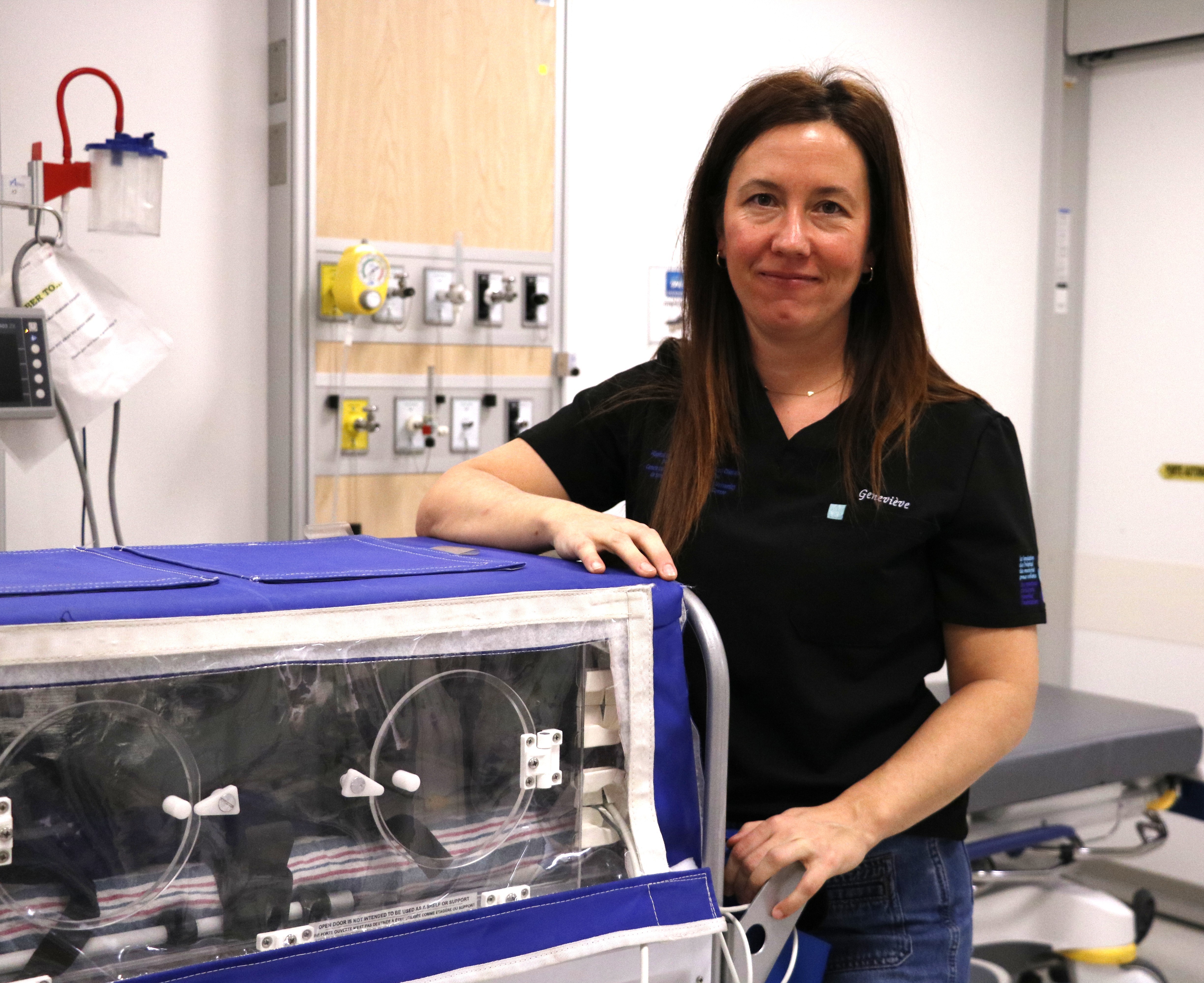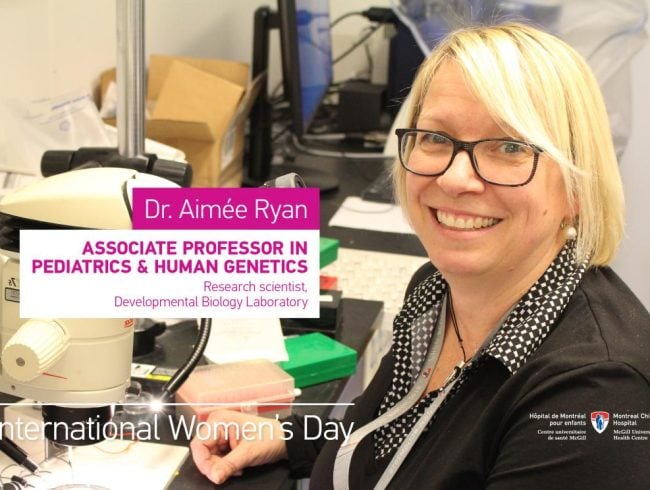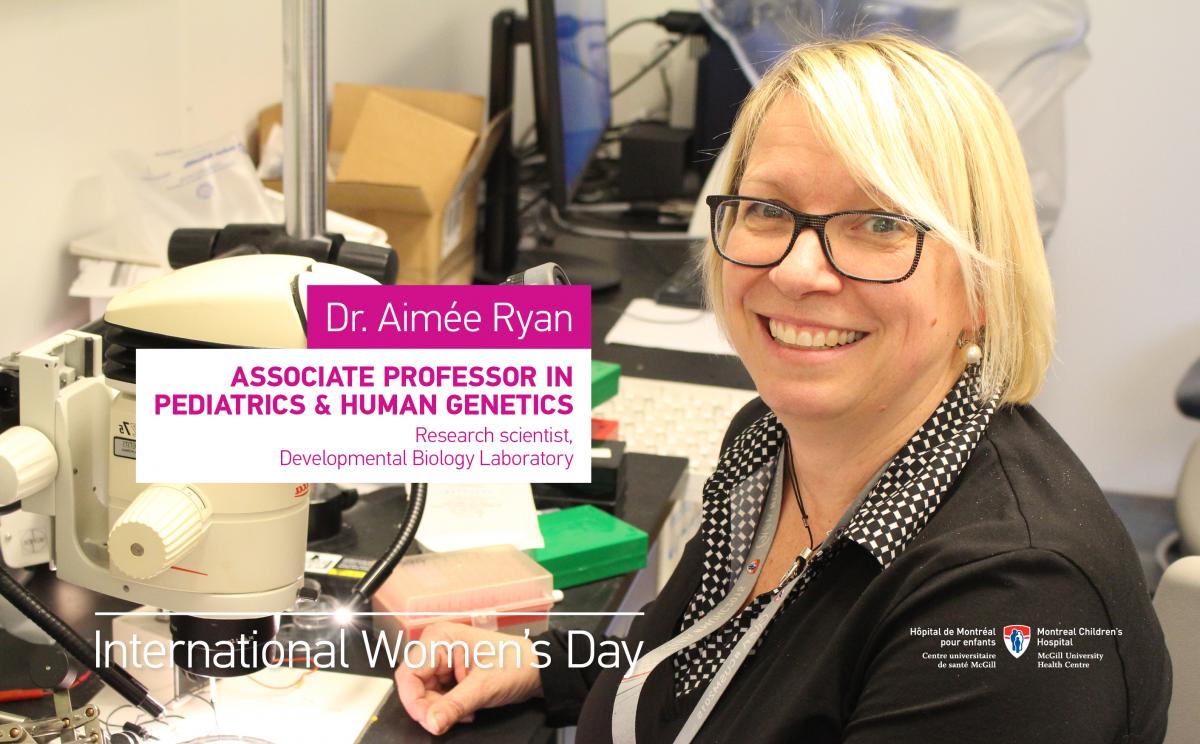
Celebrating Critical Care Transport Nurses at the MCH
18 February 2026
Rise in respiratory infections and measles outbreak: important infection prevention measures at the Montreal Children’s Hospital.
Read moreWelcome to the Montreal Children's Hospital

7 March 2017

Today marks International Women’s Day, a chance to highlight the contributions of women to the Children’s – especially when it comes to females in science.
Dr. Aimée Ryan, Associate Professor in Pediatrics and Human Genetics, says her fascination with science began at a young age. While she encountered a great deal of support from those around her, her path wasn’t always free from challenges. “I had a physics teacher in high school who didn’t think that women belonged in the field of physics,” she says. “It just made me and my female classmates even more determined to get higher grades in his class and be successful!”
Today, Dr. Ryan’s studies have paved a way to a career well beyond physics class. Her current research focuses on the identification of molecules involved in embryonic development, understanding what they do, and how mutations in these molecules may lead to birth defects. “I was first drawn to study genetics in graduate school because it provided a perfect mix of biology and math, which I loved,” she explains, “I was fascinated with understanding what turns genes off and on, and learning about how proteins regulate how tissues are formed.”
As a young female student, however, Dr. Ryan says she encountered very few female faculty members during her studies. The key to finding her own way, she says, was letting her passion lead her forward and being unafraid to think outside the box.
“There are lots of ways to measure your success as a scientist,” she says. “When you aren’t afraid to try new approaches, or ask new questions, however crazy they may seem, you can absolutely forge your own path. And it is important to communicate your research findings not only with other scientists but also with the public. It is only by sharing our discoveries with the community at large that they will appreciate how basic research discoveries are translated into improved health care.”
As a mentor and teacher to a new generation of female scientists, Dr. Ryan says her main message to them comes from her own experience trying to juggle career, family and self-care. “I tell them that science is hard for whoever does it, but the real struggle is to find the right balance you need to include enough space for everything in your life.”
Dr. Ryan credits having a supportive husband, a wealth of child care resources when her children were young, and a network of other successful, driven female scientists at the MCH site of the RI-MUHC for helping her find her own balance. “That’s one thing that I found really impressive when I arrived at the Children’s,” she says, “was the number of female scientists really excelling in their fields around me. It was the first time in my career I had so many female role models and it had a tremendously positive influence on me.”
Looking ahead, Dr. Ryan says greater investment in science could help further encourage women to continue in research as they come to make major decisions about their careers. “It’s a real tipping point for a lot of young scientists making choices after graduate school. Greater funding would allow them to continue to explore their research questions and establish careers as academic scientists. We have to keep encouraging women to go for it.”